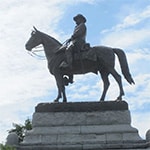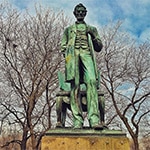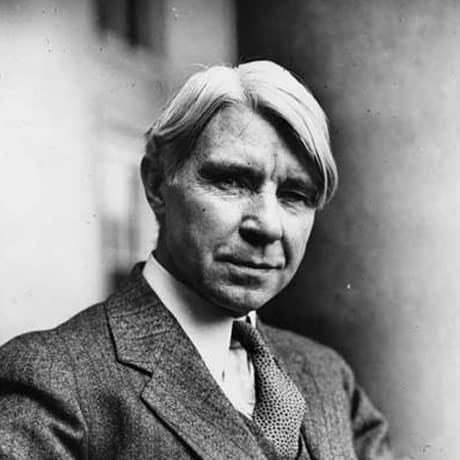Carl Sandburg: Lincoln Park, Chicago
from “Bronzes”
I
The bronze General Grant riding a bronze horse in Lincoln park
Shrivels in the sun by day when the motor cars whirr
by in the long processions going somewhere to keep ap-
pointment for dinner and matinees and buying and
selling
Though in the dusk and nightfall when high waves are
piling
On the slabs of the promenade along the lake shore near
by
I have seen the general dare the combers come closer
And make to ride his bronze horse out into the hoofs
and guns of the storm.
II
I cross Lincoln Park on a winter night when the snow
is falling.
Lincoln in bronze stands among the white lines of snow,
his bronze forehead meeting soft echoes of the new-
sies crying forty thousand men are dead long the
Yser, his bronze ears listening to the mumbled roar
of the city at his bronze feet.
A lithe Indian on a bronze pony, Shakespeare seated with
long legs in bronze, Garibaldi in a bronze cape, they
hold places in the cold, lonely snow to-night on their
pedestals and so they will hold them past midnight
and into the dawn.



